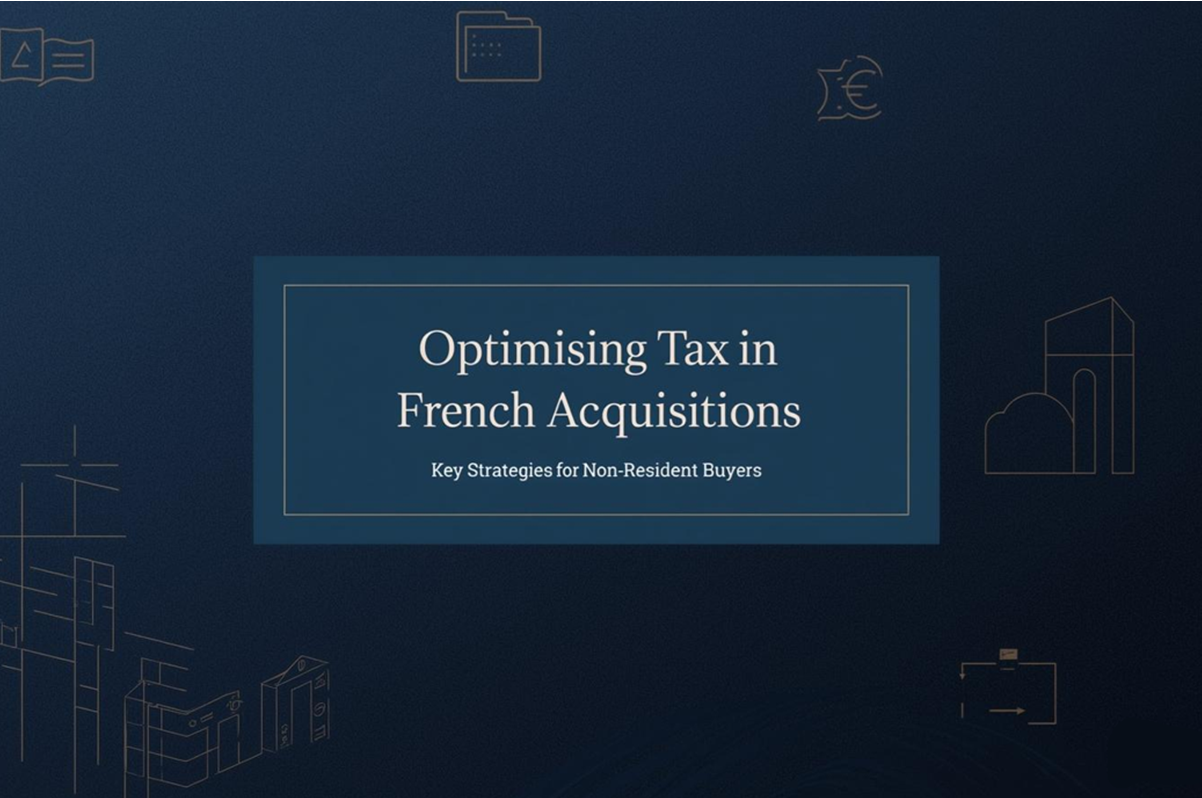Securing an Office Transaction in France: A Comprehensive Legal and Strategic Approach
The purchase or lease of office space in France is a significant investment for businesses seeking to establish or expand their operations. Whether in Paris, Lyon, Marseille, or another vibrant business hub, securing an office transaction requires careful planning, legal expertise, and a strategic approach. The complexity of French real estate law, combined with factors such as zoning regulations, taxation, and environmental considerations, makes professional guidance essential for ensuring a successful and secure transaction.


Office transactions in France fall under the broader framework of commercial real estate law, which governs the acquisition, sale, and leasing of properties used for business purposes. Each transaction type—whether a purchase, lease, or sale—has its own set of legal and financial implications, requiring a tailored approach to meet the specific needs of the parties involved. French law emphasizes transparency and fairness in real estate transactions, but the complexity of the process means that potential risks must be identified and mitigated to protect the interests of buyers, sellers, landlords, or tenants.
The first step in any office transaction is understanding the legal status of the property and its compliance with local zoning regulations. French urban planning law, governed by the Code de l’urbanisme, dictates how properties can be used and developed. Office spaces must be designated as suitable for commercial use, and any intended modifications or renovations must comply with local zoning plans, such as the Plan Local d’Urbanisme (PLU). Buyers or tenants must verify that the property’s current use aligns with their business needs and that no restrictions or planning violations could jeopardize their operations. A thorough review of zoning regulations and building permits is critical at this stage, often requiring the expertise of a French lawyer specializing in real estate.
Due diligence is an essential component of securing an office transaction in France. This process involves a comprehensive examination of the property’s legal, financial, and physical condition to uncover potential risks or liabilities. For buyers, due diligence includes verifying ownership rights, ensuring that the property is free from encumbrances such as mortgages or liens, and assessing compliance with safety and accessibility standards. Environmental considerations are also crucial, particularly for older buildings, which may require certification that they are free from hazardous materials such as asbestos or lead. Sellers, on the other hand, must provide detailed and accurate documentation about the property, including title deeds, certificates of conformity, and records of any past disputes or claims.
For tenants entering into a commercial lease agreement, due diligence focuses on reviewing the lease terms and the landlord’s compliance with their obligations. French commercial leases, governed by the Code de commerce, provide strong protections for tenants, including a minimum lease term of nine years and the right to renew under certain conditions. However, lease agreements often contain complex clauses regarding rent adjustments, maintenance responsibilities, and early termination. A French lawyer can help tenants negotiate favorable terms and ensure that the lease complies with legal requirements.
The negotiation and drafting of contracts are pivotal in securing an office transaction. For sales, the purchase agreement outlines the terms of the transaction, including the purchase price, payment schedule, and any conditions precedent to closing. In France, this process typically begins with the signing of a compromis de vente (preliminary sale agreement), which binds the parties to proceed with the sale subject to certain conditions. For leases, the lease agreement specifies the rights and obligations of the landlord and tenant, addressing issues such as rent, duration, use of the property, and maintenance responsibilities. In both cases, contracts must be carefully drafted to protect the interests of the parties and comply with French law. Lawyers play a critical role in this process, ensuring that the terms are clear, enforceable, and aligned with their clients’ objectives.
Taxation is a significant consideration in office transactions. For buyers, purchasing an office property involves transfer taxes, notary fees, and potentially VAT, depending on the nature of the transaction. Sellers may be subject to capital gains tax, particularly if the property has appreciated significantly in value. For tenants, the rental payments may include VAT, and the lease terms may require contributions to property taxes or building maintenance. A French lawyer, often working with a tax advisor, helps clients understand these obligations and identifies opportunities for tax optimization.
Financing is another critical element of office transactions, particularly for buyers seeking to acquire high-value commercial properties. French banks and financial institutions offer various financing options for real estate purchases, including mortgages and commercial loans. Buyers must ensure that their financing arrangements are aligned with their business goals and that the terms of the loan are manageable within their cash flow. Legal advisors assist in negotiating financing agreements and ensuring that they comply with French regulations.
Environmental and energy efficiency regulations add another layer of complexity to office transactions in France. The Diagnostic de Performance Énergétique (DPE) is mandatory for commercial properties and assesses their energy efficiency. Buildings that fail to meet minimum standards may require upgrades or renovations to comply with environmental laws. For buyers or tenants, understanding the property’s energy performance is essential, both for compliance and for managing operational costs. French lawyers help clients address these issues, ensuring that the property meets legal requirements and advising on potential liabilities.
Closing the transaction involves fulfilling all contractual obligations, transferring ownership or lease rights, and ensuring compliance with regulatory requirements. For buyers, this includes the payment of the purchase price, registration of the property with the French land registry, and obtaining the keys. For tenants, closing involves taking possession of the space and ensuring that the landlord has met any agreed-upon conditions, such as completing renovations or providing documentation. Lawyers oversee this process, ensuring that all legal and administrative steps are completed smoothly and accurately.
Post-transaction, the integration of the office space into the buyer’s or tenant’s operations is critical. For buyers, this may involve renovations, compliance with health and safety regulations, or adapting the space for specific business needs. For tenants, the focus shifts to managing the lease relationship and addressing any ongoing issues, such as maintenance or rent adjustments. In both cases, legal advisors continue to provide support, addressing any disputes or challenges that arise.
Securing an office transaction in France is a complex process that requires a strategic approach and professional expertise. From navigating zoning regulations and conducting due diligence to negotiating contracts and managing tax implications, every stage of the transaction carries potential risks and opportunities. By engaging skilled French lawyers and advisors, businesses can ensure that their transactions are legally sound, financially viable, and aligned with their operational goals. In a competitive and dynamic market like France, securing an office transaction is about more than acquiring space—it is about creating a foundation for growth and success.
About the Author :
Business lawyers, bilingual, specialized in acquisition law; Benoit Lafourcade is co-founder of Delcade lawyers & solicitors and founder of FRELA; registered as agents in personal and professional real estate transactions. Member of AAMTI (main association of French lawyers and agents).
FRELA : French Real Estate Lawyer Agency, specializing in acquisition law to secure real estate and business transactions in France.
Paris, 15 rue Saussier-Leroy, Paris
Bordeaux, 24 Rue du manège, 33000 Bordeaux
Lille, 40 Theater Square, 59800 Lille

This article is provided for general information only and may not reflect the most recent legal or tax developments. It does not constitute legal advice. Please contact us for personalised guidance before making any decision.




